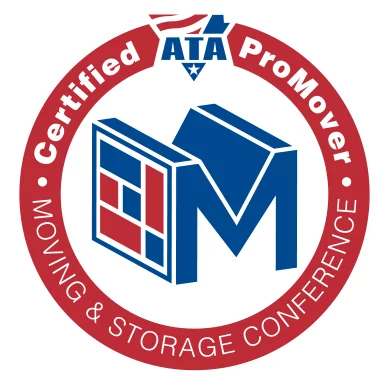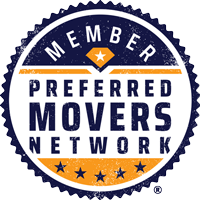6 Tips on Moving to Canada From Florida
6 Tips on Moving to Canada From Florida
Congratulations, you’ve decided to move to Canada. Now, you need to figure out your next steps for your move from Florida to Canada. This guide will walk you through everything you need to know about moving to Canada. This guide covers everything from the cost of moving to Canada to what to pack and what to leave behind to how to get through customs.
Table of Contents
- Cost of Moving to Canada
- How to Move to Canada: Customs 101
- Decluttering: What to Leave Behind
- What to Pack When Moving to Canada
- Items You Need Permits For
- Benefits of Moving to Canada: Comparing the U.S. and Canada
1) Cost of Moving to Canada
Based on our research, the average price for hiring a professional moving company to move to Canada from Florida ranges from $1,500 to $7,000. However, depending on your moving requirements, the price of your move could very well be outside of the range given.
One of the biggest deciding factors in the cost of a move is the distance traveled. The further you need to travel, the more your move will cost. Therefore, if you are moving from Sarasota to the Yukon, it is going to be more expensive than moving from Sarasota to Ontario.
Extra services, like packing and increased moving valuation coverage, will also make the cost of moving to Canada higher. This is why we recommend getting at least three estimates from three different moving companies to ensure you get a fair and accurate price.
2) How to Move to Canada: Customs 101
As of August of 2023, international moving has increased by 20% in the last year as the popularity of hybrid and remote work is on the rise. However, moving to another country requires cutting through much red tape to gain legal residency and citizenship. Even though the United States borders it, Canada is no exception to this rule.
While most visitors from foreign countries can legally stay in Canada for up to six months, gaining legal residency is slightly more complicated. Here are a few of the avenues you can use to legally move to Canada for more than six months:
- Express Entry: As probably the most common form of gaining legal residency, express entry speeds up the process of becoming a Canadian resident based on your work experience and skills. You can apply for express entry if you have at least one of the following qualifications:
- One year of full-time work experience in Canada that is completed no longer than three years before you apply for express entry.
- One year of full-time work in one of these fields, proven education, and a passing grade on an approved French or English language test.
- Proof of a job offer or application to a job in a field where you have proven skills.
- To learn more about express entry, view Canada’s express entry immigration page.
- Family Sponsorship: If you have family who live in Canada, they can sponsor you for residency. Spouses are also included, so your spouse can sponsor you for Canadian residency.
- Provincial Nominee Program: Although this case scenario is rare, a province can personally invite you and sponsor your residency. This usually only happens in cases regarding career skills. For example, if you are an up-and-coming career professional starting to make waves in software building, British Columbia could sponsor you because they want to expand the province’s software-building industry.
While those are just a few of the many ways you can become a permanent resident in Canada, they are some of the quickest ways to achieve it. However, if you want to become a Canadian citizen, you have to live in Canada as a legal resident for at least three of the past five years when applying. To learn more about how to obtain Canadian citizenship and Canadian immigration, check out the Government of Canada’s citizenship eligibility page.
3) Decluttering: What to Leave Behind
When moving to another country, the more items you bring, the more expensive your move will be. However, that is not the only reason you should declutter before moving. There are also a lot of items that will not work the same, are prohibited, or are not practical to bring to foreign countries. So what should you leave behind? Here is a list to get you started:
- Electrical Appliances
- It is best to leave behind small appliances, including kitchen appliances, that you rarely use. Do you really need to lug half of your kitchen with you? Make your international move easier by leaving behind the electrical appliances you do not need.
- Furniture
- Ensure your furniture will fit in the square footage of your new home.
- It may be best to leave behind all unnecessary furniture that you do not use often, as it is expensive to move to another country.
- Mattresses – Canada doesn’t allow used mattresses into the country without certification that the mattress has been fumigated.
- Clothing
- When moving from Florida to Canada, there will be a big difference in climates. This means you probably will not need to bring all of your warm-weather clothes with you.
- Be selective when taking clothes with you. Don’t be afraid to travel light, as you will most likely need to buy clothes for colder weather when you arrive at your new home.
- Large Sports Equipment
- This includes paddle boards, kayaks, bikes, kayaks, rollerblades, golf clubs, volleyball nets, etc.
- Not only are these items bulky and expensive to move, but you may not need them in Canada, depending on where you are moving. Keep in mind if you will have room for them in your home if the climate allows for them and if the area you are living in allows for them (i.e., urban environments).
- Firewood and Soil
- These items are not allowed in the country without strict permits to protect the ecological systems in Canada.
4) What to Pack When Moving to Canada
Once all the logistics of immigration are figured out, it’s time to start thinking about packing. When moving to another country, especially when traveling by plane, it is important only to bring what you need in your carry-on and suitcases. Here are a few things to pack:
- Weather-Wise Wardrobe: Canada’s climate varies significantly depending on the region. While Vancouver might have mild winters, cities like Winnipeg can get intensely cold. We recommend packing a diverse wardrobe, including heavy winter gear, especially if moving during the colder months.
- Essential Documents: Keep passports, birth certificates, work or study permits, and other critical paperwork in a secure but easily accessible place. These are crucial for the immigration process.
- Adaptors and Electronics: Canada’s electrical system operates at 120 volts and 60 hertz. It’s wise to check any electronics being brought along for compatibility and pack necessary adapters.
5) Items You Need Permits For
Crossing international borders involves regulations, and Canada has its list of items in which one would need permits or might face restrictions:
- Firearms and Weapons: Canada has stringent regulations concerning the import of firearms and weapons. It’s essential to declare them at the border and have the necessary permits.
- Plants and Animals: Certain plants and animals can be invasive species in Canada. If planning to bring any houseplants or pets, ensure they’re not on Canada’s restricted list and have necessary permits and health certificates.
- Cultural Property: Artifacts and items of historical significance might be subject to permits, especially if they originate from indigenous communities.
6) Benefits of Moving to Canada: Comparing the U.S. and Canada
Moving to Canada comes with its unique set of advantages. Here’s a comparison of some key benefits:
- Health care: One of Canada’s standout features is its universal healthcare system. Residents typically don’t pay directly for most healthcare services. In contrast to the U.S., where healthcare can often be a significant expense, this can be a relief for many new residents.
- Education: Canada has a great public education system, but they do call their grade levels Grade 1, Grade 2, etc. Make sure you keep that in mind so you don’t slip and say, “1st grade.” Furthermore, international students often opt for Canadian universities due to their high standards and relatively lower fees than some U.S. institutions.
- Safety and Quality of Life: Canada consistently ranks high in global quality of life indexes. The crime rate is relatively low, and cities like Vancouver, Toronto, and Montreal are frequently listed among the world’s best places to live, offering a blend of cultural experiences, outdoor activities, and city living.
Move to Canada with a Professional Moving Company
Overall we hope this guide answers as many of your questions as possible. Our very last recommendation is to hire a professional moving company that has experience with international moving, especially with moving to Canada from Florida. Safe travels on your international move!









